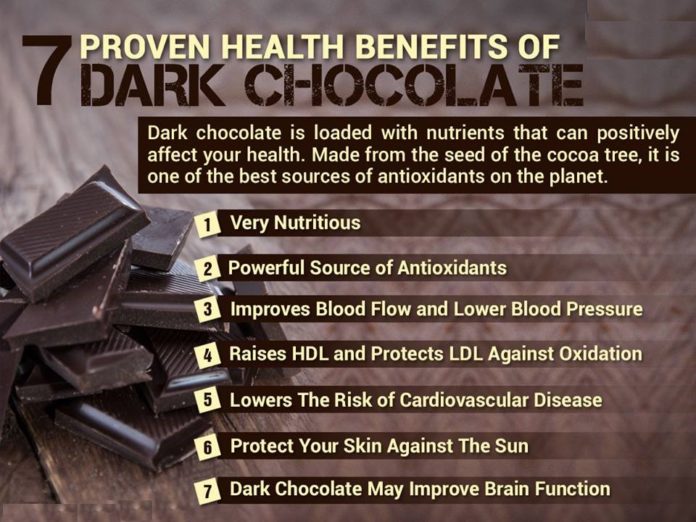URI nutrition professor bucks the trend of positive news about chocolate
The
medicinal properties of chocolate, and cocoa in particular, have long been
lauded, from their positive effects on blood clotting and the immune system, to
the psychological benefits of improved concentration and increased endorphins. 
She doesn't buy it
Writings from as far back as the 1600s describe using cocoa, which translates
from Greek to “food of the gods,” for stimulating healthy spleen and digestive
functions.
Fast
forward to the present, when the average American will consume the equivalent
of 10,000 chocolate bars in their lifetime. Americans, in fact, consume
approximately half the world’s supply of chocolate. What could this mean for
their health?
In
an analysis published in the JAMA (Journal of the American Medical Association)
Network Open journal, researchers found “probable or convincing evidence” that
eating chocolate was linked with a reduced risk of cardiovascular disease. They
estimated that consuming just 10 grams–the equivalent of about a third of an
ounce of chocolate–each day is associated with a 6% reduction in the risk
of cardiovascular disease.
We
asked Maya Vadiveloo, associate professor of nutrition and food sciences from
the University of Rhode Island, to share her expert opinion:
Q: Will eating chocolate improve our health?
A: I don’t think that chocolate, like many other foods that
people might consider the new ‘superfood,’ is going to inherently make you
healthier, although a little bit of dark chocolate or unsweetened cocoa added
to your smoothie is probably OK.
Q:
What is your overall take on the results of this review?
A: The JAMA meta analysis demonstrates that there appear to be
beneficial aspects of some of the substances found in cocoa, including
flavanols. But, given the quantities associated with the manner in which most
people consume chocolate, and the increased dairy fat and sugar, people should
be cautious.
Q:
Should we consume chocolate on a regular basis?
A: Most forms of chocolate we eat are calorie dense. Increasing your
consumption is going to add significant calories, and any resulting weight gain
could increase your risk of cardiovascular disease more than if you didn’t
incorporate chocolate. Be aware of portion sizes, and realize that no one food
is going to be a magic bullet for improving your health.
I
recommend eating a balanced diet, rich in fruit, vegetables, whole grains and
legumes. You can indulge in chocolate and other snacks occasionally, but it’s
important to frame them as a treat.
Maya
Vadiveloo, Ph.D., RD, FAHA, is a registered dietitian and nutritional
epidemiologist whose research focuses on using behavioral theory to favorably
influence food choices, dietary quality, weight control, and eventually
cardiovascular health. She serves on the national Nutrition Committee for the
American Heart Association’s Lifestyle and Epidemiology Council and frequently
serves as an expert in national nutrition-related news stories.